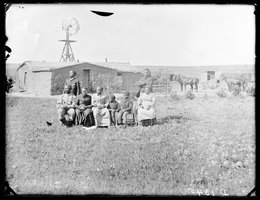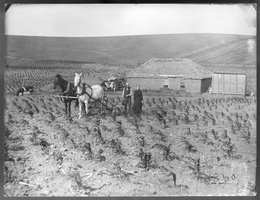

The Homestead Act of 1862 was a piece of inspired legislation. It allowed anyone who was over 21 and the head of a household to own land. The Homestead Act became a symbol of new found freedom for many African Americans. The day that the Homestead Act went into effect — January 1, 1863 — was the same day that President Abraham Lincoln issued the Emancipation Proclamation. Many Black Americans began looking to the west as a place where they would have the freedom to own their own land.
In addition, “head of a household” meant a single woman, or a single mother could own land. The Act had special provisions for the widows of Union soldiers that reduced the time they needed to “prove up” a claim. So, the Act expanded the economic options of women decades before the suffrage movement won the vote.
The Act specified that homesteaders had to be “citizens of the United States or [those] declaring the intention to gain citizenship.” That meant that any immigrant who legally entered the country was eligible to claim land. While immigration laws at that time favored immigrants from Europe, the Act did broaden the definition of who could own land.

Not everyone was happy with the Homestead Act. It was not a perfect piece of legislation and several problems developed.
By 1900, only about 52% of the original homestead claimants had followed through to take legal title to the land. The remainder ended up in the hands of the railroads, private speculators and "shysters".
However, the Homestead Act did encourage settlers to move into areas of the United States that had not been settled, and it did hold out hope for those who wanted a chance to start over. Before the Act, most farmers living in the east were renters. After the Act, there was a realistic chance that you could be counted among the landowners.
Regardless of specific strengths and weaknesses, federal land policies like the Homestead Act played a major role in encouraging settlement in what was to become the state of Nebraska. The Act became the cornerstone of the nation’s public land policy.